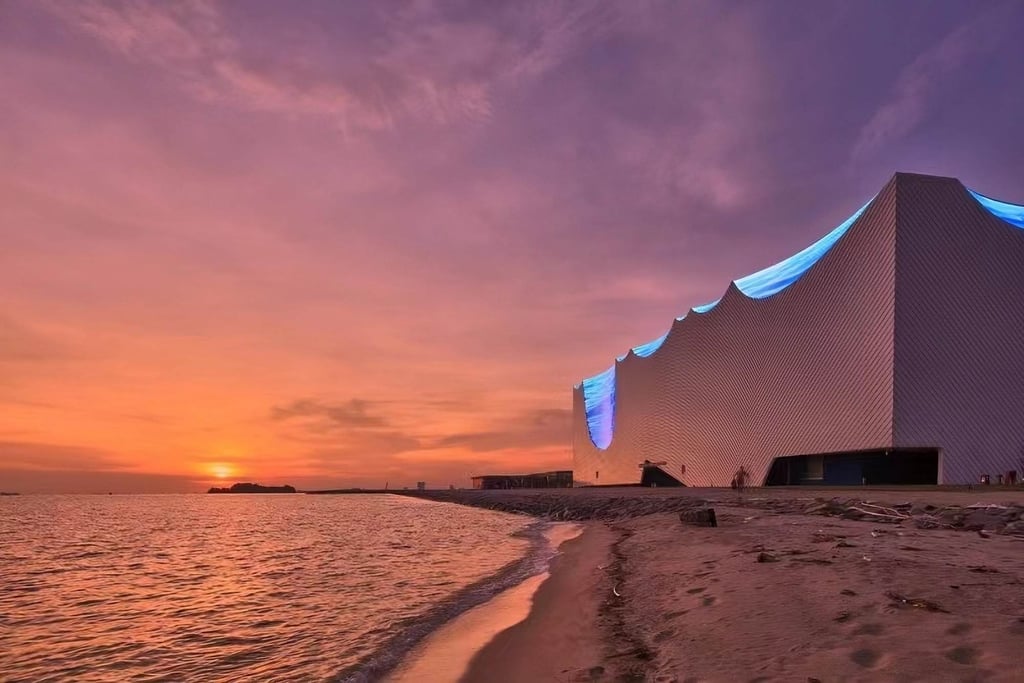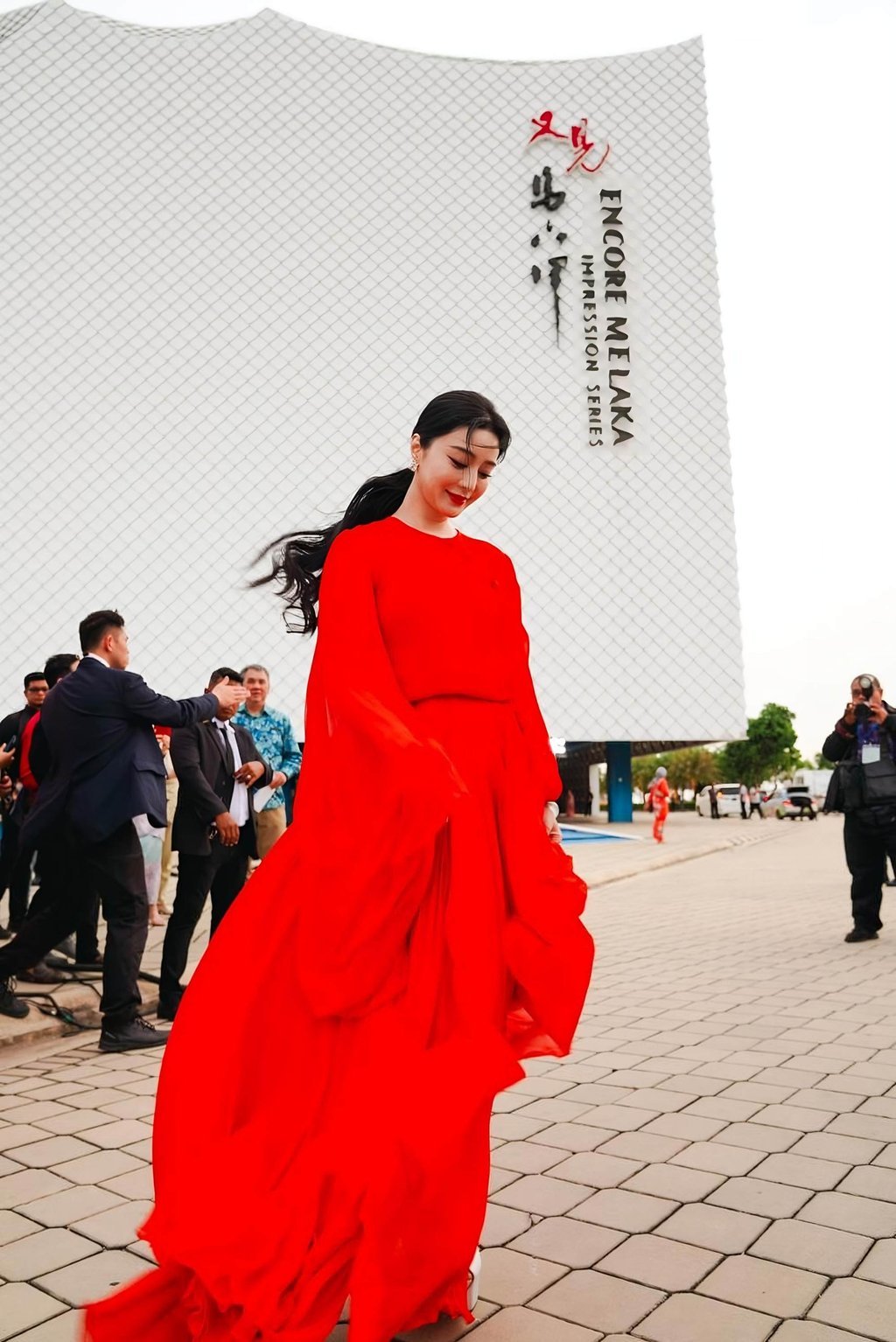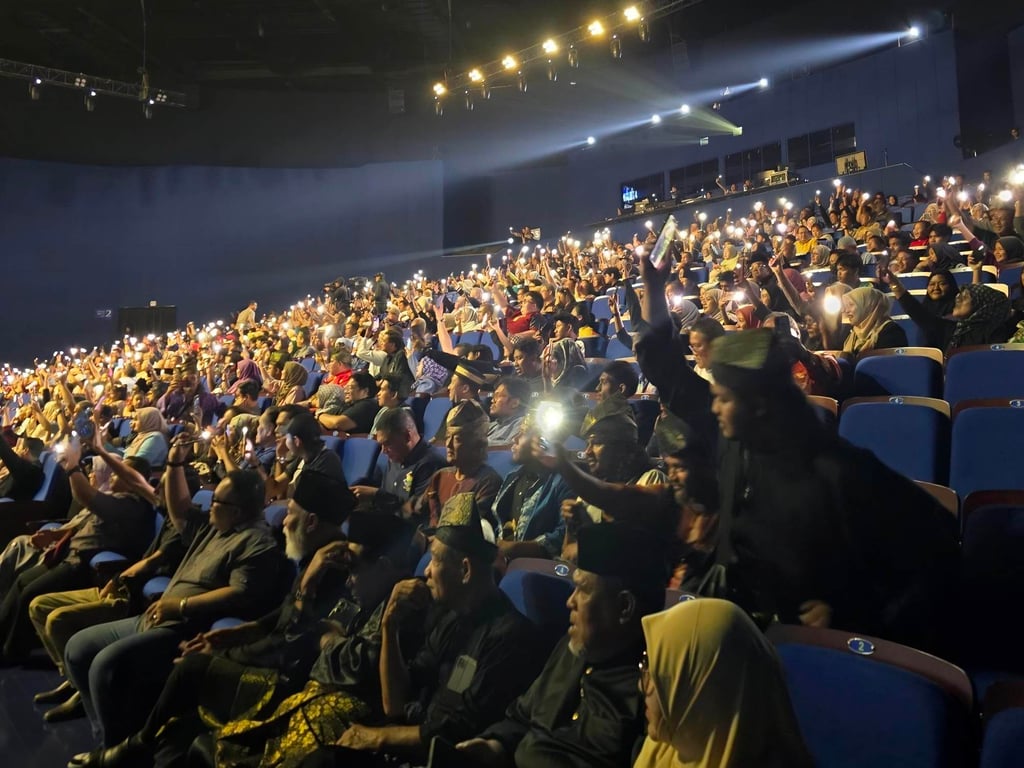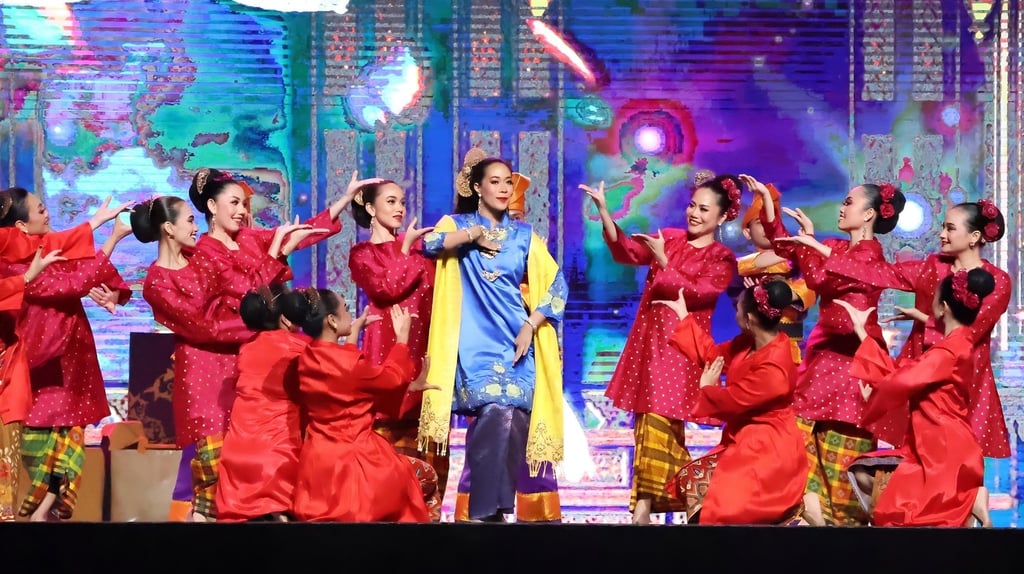Malaysia courts Chinese tourists with lavish Encore Melaka mega-theatre, unsettling locals
- Encore Melaka’s gleaming facade and dazzling shows mask tensions, as Malaysia’s push for Chinese tourism upends a historic city

Hadi Azmi
+ FOLLOW
Published: 12:30pm, 17 Aug 2024
Why you can trust SCMP
Listen to this article
Perched on land reclaimed from the sea, a grand 2,000-seat theatre in Malaysia’s historic city of Melaka promises a dazzling showcase of the country’s rich cultural heritage. But the glitzy Encore Melaka, with its white fish scalelike facade and vast LED screens, is increasingly seen as being at odds with the local population it was meant to attract.
Decades of land reclamation have transformed Melaka’s coast, pushing the original shoreline more than 2km inland. A new mega-project promises to create over 10,000 hectares of additional land along 33km of the city’s coast – further encroaching on the delicate ecosystem and centuries-old landscape of this 14th-century port town.
For many locals like historian Edward Lee, the Encore Melaka theatre, designed by Wang Ge of China’s state-owned Beijing Institute of Architectural Design, is just another white elephant project from a China-linked company. “It caters to foreigners, mostly Chinese tourists,” the 36-year-old lamented. “For most locals, we aren’t bothered, honestly.”
In nearby Melaka Raya, the sprawling 12-story Elements Mall, also built on reclaimed land with Chinese investment, stands largely empty save for a lone cinema. The towering development looms over the historic Portuguese Settlement, home to Melaka’s unique Kristang community. “The reclamation has silted up the bay, we can’t fish any more,” community leader Martin Theseira told This Week in Asia. “And now they want to reclaim even more, build even more.”
Much of this newly-reclaimed real estate is earmarked for the ambitious Melaka Gateway project – a Chinese-backed residential and commercial development spanning four artificial islands, complete with a free-trade zone and cruise terminal. But for many locals, it’s a vision of the future that feels at odds with the city’s storied past.

The Encore Melaka mega-theatre was built on reclaimed land along the historic city’s coastline. Photo: Facebook/Encore.Melaka
Despite the ambitious scale of the project, its path has been anything but smooth. Originally slated for completion in 2025, the development was abruptly terminated in 2020 before being reinstated last year – albeit in a downsized form.
The ebbs and flows of the Melaka Gateway highlight the complex tensions simmering beneath the surface of Malaysia’s outward representation as a harmonious, multicultural society. In recent years, China’s growing economic clout has become an increasingly influential factor shaping Malaysian development priorities.
While the country’s government has been actively fostering closer ties with Beijing, China’s overlapping claims in the South China Sea and its frequent incursions into contested waters have become major points of contention. The perceived influx of mainland Chinese citizens into Malaysia has also stoked xenophobia among a society still grappling with its own long-standing communal issues – particularly between the Malay majority and the local Malaysian Chinese population.
Every Saturday
A weekly curated round-up of social, political and economic stories from China and how they impact the world.
GET OUR NEWSLETTER
By registering, you agree to ourT&CandPrivacy Policy
“Some Malays are afraid that the local Malaysian Chinese are going to ride on the progress of China and become more politically powerful,” said political analyst James Chin, a professor of Asian studies at the University of Tasmania.

Chinese actress and tourism ambassador Fan Bingbing poses for photos outside the Encore Melaka building earlier this year. Photo: Facebook/Encore.Melaka
Tourist dollars
Encore Melaka was conceived with the aim of revitalising the historic city’s tourism sector.Tourism is a vital economic engine for Malaysia, accounting for as much as 16 per cent of the country’s gross domestic product before the pandemic. Now, the Southeast Asian nation is working overtime to lure visitors back to pre-Covid levels, with Melaka setting a target of attracting 1 million Chinese tourists this year alone.
To that end, the state has enlisted the star power of Chinese actress Fan Bingbing, whose 63 million Weibo followers represent a tantalising prospect for driving a surge in Chinese tourist arrivals.
“Western countries have Broadway shows, Eastern Europe has opera, and China also has a lot of performances. But Malaysia, we don’t have something to showcase to the world our culture,” said Encore Melaka’s founder, local businessman Boo Kuang Loon.
Boo Kuang Loon, Encore Melaka founderIt is a cultural exchange: we learn how to cast a show from the Chinese, but it is invested in by Malaysians
Boo was so captivated by a theatrical production he witnessed in China that he set out to create a similarly grand spectacle to entertain both local and international audiences in his hometown of Melaka. Drawing on his connections, he reached out to renowned Chinese director Zhang Yimou, the creative force behind the 2008 Beijing Olympics opening ceremony, who agreed to collaborate on the project.
“It started with me, personally, as an individual. It was never a government initiative,” Boo said.
Envisioned as the centrepiece of a larger cultural theme park highlighting Melaka’s diverse Malay, Chinese, Indian, Peranakan, and Portuguese heritage, Encore Melaka was jump-started with the help of Chinese experts. But Boo insists it has since been entirely run by Malaysians.
“It is a cultural exchange: we learn how to cast a show from the Chinese, but it is invested in by Malaysians, telling a Malacca story, and performed by a 100 per cent Malaysian cast,” he said. “The only Chinese element is the China director. The rest are all Malaysians.”

Since reopening in July, Encore Melaka has seen its audience increasingly dominated by domestic visitors, who now make up more than 80 per cent of ticket sales. Photo: Facebook/Encore.Melaka
Shared history
Since reopening in July after a four-year pandemic hiatus, Encore Melaka has seen its audience increasingly dominated by domestic visitors, who now make up more than 80 per cent of ticket sales. Malaysian patrons enjoy discounted admission at 78 ringgit (US$17), while foreigners pay the full 150 ringgit (US$32) price tag.“We want to target more foreigners,” Boo said. “[Ultimately,] we want maybe about 60-70 per cent foreigners.”
The venue’s home-grown pedigree has been further accentuated by the decision of Malaysia’s national theatre, Istana Budaya, to temporarily relocate its performances to Encore Melaka while its Kuala Lumpur venue undergoes renovations until 2026.
A packed programme of shows has been lined up to coincide with the 50th anniversary of diplomatic relations between Malaysia and China this year. Highlights include the Puteri Hang Li Po Musical Theatre, which recounts the history of the Malay Sultanate of Melaka and the legend of the Ming dynasty princess who married the Malaccan sultan in the 15th century – an event believed to have seeded the unique Peranakan culture found across Malaysia to this day.
Yet as Encore Melaka seeks to celebrate the city’s past, Malaysia’s complex and often contentious relationship with its modern multicultural identity continues to simmer. Experts point to unpredictable outbursts of “cancel culture” and thin-skinned nationalism, as seen in recent controversies over the traditional Malay attire worn by Malaysian athletes at the Paris Olympics, and the perceived lack of Malay representation in a festival promotion video in Penang.

A performance at Encore Melaka. Envisioned as the centrepiece of a larger cultural theme park, the mega-theatre was jump-started with the help of Chinese experts. Photo: Facebook/Encore.Melaka
For Melaka native Amber Robinson – who has been impressed by the production value of Encore Melaka’s shows, which she called “more advanced and unique” than those held on Broadway or in London’s West End – the double-edged sword of cultural preservation is a constant source of unease. Hailing from a mixed-race family with deep roots in the state, she worries that the drive for progress could come at the expense of Melaka’s living, breathing culture.
“Will our culture end up being something that people have to go to theatres to see instead of being alive and thriving?” Robinson asked. “Maybe we need to slow down and take care of what we still have.”
Ultimately, the success of Encore Melaka will rest not only on its ability to dazzle audiences, but also on its delicate navigation of the complex web of identity, history, and community that gives this historic city its distinctive character.
